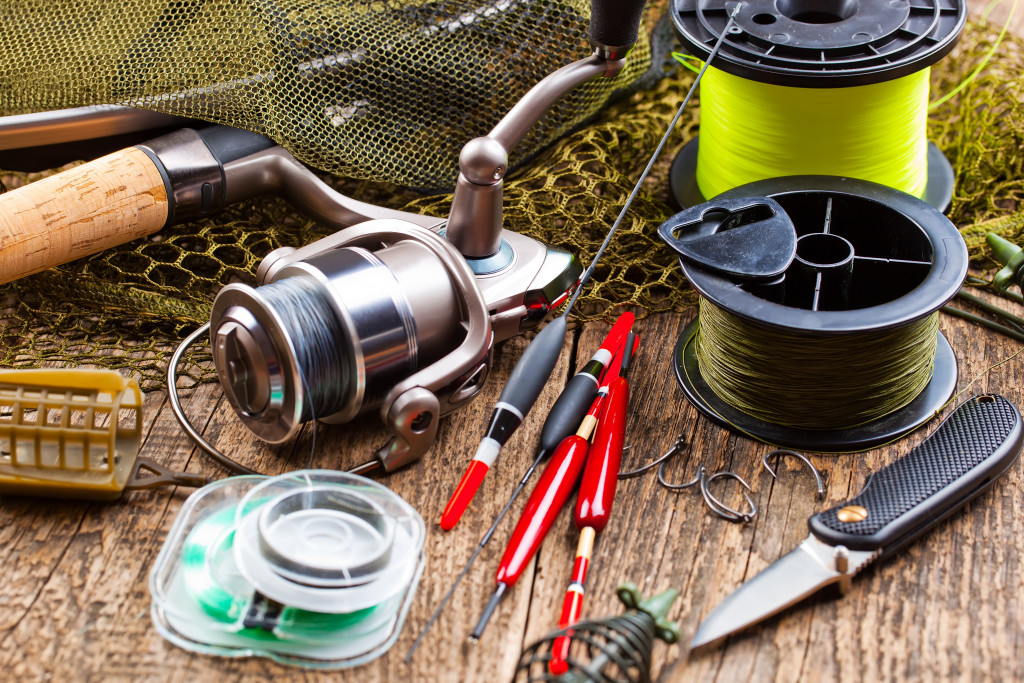Are you opening a fishing gear store? Congrats! Whether you’re a seasoned retailer or venturing into the world of business for the first time, there’s a lot to think about when stocking your shelves.
In addition to the obvious (fishing rods, lures, bait, etc.), there are a few other supplies essential to any fishing gear store. Here are four suppliers you need to contact as you get your business up and running.
A Wholesaler or Manufacturer of Fishing Gear
The ideal supplier relationship is one in which you directly connect to the source of the products you’re selling. That way, you can be sure you’re getting high-quality merchandise at a competitive price. If you’re selling fishing gear, it only makes sense to buy direct from the people who make it.
Do your research and reach out to different wholesalers and manufacturers of fishing gear to see if they’re interested in working with you. Ensure you have the right fishing rod manufacturers on board if you are selling fishing rods. Don’t forget to look into the manufacturers of lures, reels, and other gear.
Moreover, when choosing a fishing gear supplier, it’s important to research and find the right one for your business. Here are three tips for finding the right manufacturer:
- Look for a company with a good reputation: When it comes to fishing gear, you want to ensure you’re getting quality products. Do your research and find a supplier with a good reputation in the industry.
- Ask for references: Don’t just take a supplier’s word for it. Ask for references from other businesses that have previously worked with them. This will give you a better idea of what to expect from them.
- Compare prices: It’s important to find a supplier that offers competitive prices without compromising quality. Compare the prices of different manufacturers to find one that offers the best value for your money.
A Distributor of Fishing Licenses
Unless your store is exclusively online, you’ll need to get a license to sell fishing supplies from your brick-and-mortar location. The process for obtaining this license will vary depending on your store’s location.
In the United States, for example, businesses must contact their state’s wildlife agency to obtain the appropriate license. Once you have your license, you’ll need to find a distributor who can provide you with the necessary items—fishing licenses, tags, and stamps—to sell to your customers.
You’ll need a few different licenses to sell fishing supplies from your store. The first is a license to sell fishing gear. This license allows you to sell rods, reels, lures, and other fishing supplies from your physical location.
A Shipping Company

If you plan on selling fishing gear online—or even if you want to offer shipping as an option for customers who enter your physical store—you’ll need to establish a relationship with a shipping company.
This is especially important if you plan on selling large items like boats or kayaks. Not all shipping companies are created equal, so do your research and find one that offers competitive rates and good customer service.
You’ll need to find a shipping company that offers competitive rates and good customer service. Some good options include UPS, FedEx, and the United States Postal Service. You also need to research their shipping policies and procedures, as well as their track record when it comes to handling large items.
An Interior Design company specializing in retail store design
First impressions matter, so your store must look inviting and well-organized when customers enter the door (or click on your website). One way to achieve this is by working with an interior design company specializing in retail store design. These companies can help you create a practical layout for your store and choose furniture and fixtures that complement your merchandise.
When planning your retail store design, it’s important to start with the basics. Here are three tips for getting started:
- Plan your layout carefully: Take the time to plan your store’s layout before buying furniture and fixtures. This will help you ensure that your store is well-organized and looks inviting to customers.
- Choose furniture and fixtures that complement your merchandise: Don’t just buy whatever furniture and fixtures you can find. Make sure you choose pieces that complement your merchandise and create a cohesive look for your store.
- Don’t forget the details: Don’t forget the small details while planning your store’s design. Things like signage, lighting, and flooring can make a big difference in your store’s overall look and feel.
These are some of the essential vendors you’ll need to establish relationships with if you want to open a fishing supply store. It’s important to research and find reliable, cost-effective vendors who offer quality products and services. With the right partnerships in place, you can ensure that your store is successful.

